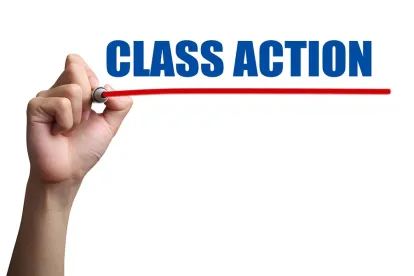On March 13, the Fourth Circuit Court of Appeals rejected plaintiffs’ claim in a class action under Section 8 of the Real Estate Settlement Procedures Act (RESPA), which imposes a broad prohibition against referral fees or kickbacks in the real estate settlement context. In doing so, the court weighed in on an issue that the U.S. Supreme Court ultimately ducked in First American Financial Corp. v. Edwards, 132 S. Ct. 2536 (2012) (dismissing cert. as improvidently granted): whether a consumer plaintiff who cannot show any concrete injury as a result of the alleged referral fees paid in a home purchase transaction has constitutional standing. In Baehr v. Creig Northrop Team, P.C., No. 19-1024 (4th Cir. Mar. 13, 2020), the Fourth Circuit ruled that the record showed no such injury, and therefore affirmed the trial court ruling that the class action plaintiffs could not avoid summary judgment on their Section 8 RESPA claim.
This first-of-its kind appellate holding in the RESPA arena is one that industry has long sought. The decision will likely restrain class cases that seek millions of dollars in damages under RESPA’s treble damages provision despite—as in Baehr and in several other cases—no allegation of any real world harm. (The authors of this blog post represented the real estate team defendants in the case.)
In Baehr, the plaintiffs—who were joint purchasers of a home in 2008—claimed that the real estate team to which their buyer’s agent belonged had a marketing agreement with the title agency used by the plaintiffs and that monthly marketing payments made by the title agency to the team were actually “kickbacks” under RESPA Section 8. The only claim of injury in the complaint was that the plaintiffs were deprived of fair and impartial competition by the alleged title referral and the payment of the alleged kickbacks.
These allegations survived the pleadings stage, but not summary judgment. In deposition, the plaintiffs admitted the services they received from the title agency were very good and that the title agency deserved the fees it charged. The plaintiffs further acknowledged that the fees charged by the title agency were fair and not excessive; indeed, the record showed that those fees were the same or lower than what the plaintiffs had paid to another title agency eight years earlier, when they bought a home that was much less expensive.
After the defense moved for dismissal based on lack of constitutional standing—and after the Supreme Court held in Spokeo, Inc. v. Robins, 136 S. Ct. 1540 (2016), that a bare procedural violation of the Fair Credit Reporting Act, divorced from any concrete harm, does not confer Article III standing—the Baehr plaintiffs argued that they were injured in additional ways not evident from their complaint. Plaintiffs asserted that: (i) the defendants supposedly were their fiduciaries, and thus had an affirmative duty to disclose any consideration paid in plaintiffs’ transaction, and to share any such consideration with plaintiff; (ii) plaintiffs did not get the benefit of their bargain and paid for settlement services in violation of RESPA; and (iii) the defendants were unjustly enriched.
The Fourth Circuit, applying Spokeo, started from the premise that a mere statutory violation is insufficient to supply Article III standing. Acknowledging that a loss of impartial and fair competition could be a possible concrete intangible injury, the appellate court held that Section 8 of RESPA, as explained by its statutory purpose, was designed to protect consumers against certain abusive practices “that tend to increase unnecessarily the cost of certain settlement services.” Looking at the purpose of the law and its structure—which entitles private plaintiffs only to statutory damages, not injunctive relief, and provides no competitor rights of action—the deprivation of fair and impartial competition “was not the harm that Congress enacted [Section 8(a)] of RESPA to prevent” and hence was a harm that was nothing more “than a statutory violation divorced from any real world effect.” The court found that cases with arguably contrary analyses, but which were decided pre-Spokeo, to be of no force. Likewise, cases involving disclosure rules that apply to so-called “affiliated business arrangements” were inapposite in the context of a marketing agreement between two unaffiliated providers.
Furthermore, the panel opinion found that the record did not support the allegation that the plaintiffs were deprived of fair and impartial competition, since it was undisputed that plaintiffs had no interest in shopping for settlement service providers, did not investigate the title agency or any possible competitors, and were perfectly satisfied with the services they received.
The court likewise had little trouble dispensing with what it characterized as the plaintiffs’ three new arguments about injury, rejecting their fiduciary duty claim, holding that unjust enrichment did not harm plaintiffs (and, in this context, was inconsistent with Spokeo), and that payment for a service in an alleged unlawful transaction was still just a bare statutory violation insufficient to provide Article III standing.
In short, it is clear that at least in the Fourth Circuit, alleged violations of RESPA must comply with Spokeo. A plaintiff must not only prove the elements of the claimed violation, but also establish some concrete injury.





 />i
/>i
